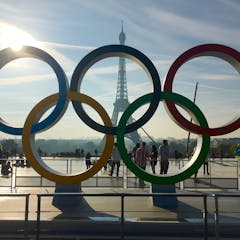
Articles on Russia-Ukraine
Displaying 1 - 20 of 259 articles

German Chancellor Olaf Scholz outlined bold, long-term goals: Strengthen the country’s depleted military with extraordinary investments and adopt assertive foreign policy defending global norms.

There are several reasons why supporting Ukraine helps the US too, including creating a deterrent for China, Russia and other potential adversaries.

Georgia is backsliding toward Russia’s sphere of influence.

Since annexing Crimea ten years ago, Putin has set out to destroy non-Russian identities on the peninsular.

South Africa is among a few countries that completely prohibit the involvement of citizens in foreign armed conflict.

Ukraine has denied any involvement in the terrorist attack that killed dozens of people in Moscow, but that doesn’t mean Russia won’t try to use the event as a way to escalate its war with Ukraine.

Russian propaganda and talking points on Ukraine continue to be repeated, without being challenged, two years after the war began.

The Russia-Ukraine war highlights developments in modern warfare, which uses new weaponry alongside traditional methods of fighting.

The Olympic Games have also been highly political events – Paris 2024 will be no different.

Artdocfest 2024 was a showcase for films that show the reality of the war in Ukraine, and the spread of Russian politics to neighbouring countries.

Russia’s armed forces continue to gain territory in Ukraine, at high cost to both sides.

Ukraine can borrow lessons from the First World War as the war with Russia enters its third year.

This year, all the Oscar nominees for best documentary feature come from outside of the United States.

Through a nuanced exploration of place, time, and memory, this new video work invites audiences to reflect on landscape and its relationship to the echoes of conflict.

In addition to destroyed buildings, there’s an entire underground world – filled with untold numbers of artifacts, bones and ruins – that are exposed and damaged by the digging of trenches.

Satellite photography of the Ukrainian city of Bakhmut shows block after block of destroyed buildings. Satellite radar provides a different view – a systematic look at the destruction of the whole city.

Drones have dominated images of the war in Ukraine, but an expert on drone warfare casts doubt on many of the grand claims made for the weapons.

The International Court of Justice stopped short of calling for a ceasefire in Gaza. New Zealand now needs to refine its foreign policy to play a constructive role in what happens next.

Six cases are testing international accountability mechanisms and showing how small countries like New Zealand can impact global justice.

Kim Jong-un is continuing to release statements about a possible military conflict with South Korea.
